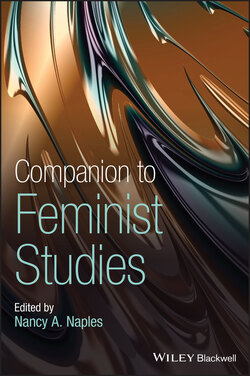Читать книгу Companion to Feminist Studies - Группа авторов - Страница 43
Social Reproduction, Imperialism, and Revolutionary Subjects
ОглавлениеAs neoliberalism solidified its global hegemony in the twenty‐first century, Marxist feminist debates frame revolutionary struggles from women returning to the commons, in revolutionary collective forms of land‐based survival. The Zapatistas in Chiapas, Mexico and the Landless Workers Movement in Brazil have developed Marxist feminist critiques of global capitalism (Desmarais 2007; Zapatista Women of the Caracol of the Tzotz Choj Zone 2018). They combine older reproductive forms of subsistence farming and home‐based production of basic goods, without patriarchal gender relations. In Argentina, worker‐collectives revived stagnant factories with profit‐sharing and worker‐based ownership of the means of production rather than consolidation of wealth into the hands of a few. As theories of praxis, these examples of solidarity economies address two interconnected sites of struggle. First, they combat imperialism through their refusal to give up land, labor, and lives to the capitalist demand for new markets. Second, they fight against the primitive accumulation of their lands, refusing to cede the remaining commons through maintaining cooperative landholdings and the shared means of production. In Iran, Iraq, and Syria, the Kurdish Workers Party, through its regional semi‐autonomous governance in northern parts of West Asia, has sought to redefine the family, foster equitable decision‐making, and support women's independence (Ocalan 2013). Divides between home and work, private reproduction, and public production overlap in many of these alternatives to capitalism.
Another significant debate with Marxist feminism relates to the role of the state. Those who took a position that solutions to economic and gender oppression need to take place outside of the nation‐state or formal political structures were promoted by anarchist and syndicalist feminists (see, for example, Ackelsberg 1991). Syndicalists were active in the labor movement and argued for the importance of local union organizing and strikes to effect radical social change. Feminists in the anarcho‐syndicalist tradition from Brazil, Argentina, Italy, and the US theorized the emergence of new political subjectivities and new collectivist projects residing within neoliberalism's contradictions. These scholars theorize a subject of resistance that hollows out the compliance of the ideal subject of neoliberal capitalism: the entrepreneur. As Miranda Joseph and Carla Freeman describe, the entrepreneurial subject is configured as autonomous from its social fabric and thus flexible, with time, space, self, and survival (Freeman 2014; Joseph 2014). Lynn Marie Tonstad raises the possibilities of ending capitalism through queering the entrepreneurial practices of self, including “risk‐taking, vulnerability, openness to failure, unexpected forms of affiliation” (Tonstad 2018, p. 227). Cristina Morini suggests that women workers in particular provide ideal subjects for navigating the precarity of these entrepreneurial conditions of work, making them both “more resistant and more reactive” (Morini 2007).
When capital meets the limit of mechanizing the working subject's experiential knowledge, the possibilities for liberation from work begin. For Kathi Weeks, the precarity of work mutates into the post‐work state of finance capitalism (Weeks 2011). In this context, the politics of antiwork can imagine new horizons for collectivity, value, and revolt. Heather Berg explores the refusal of “social necessity debt,” that is, how workers “are evaluated based on the perceived necessity of their work to the reproduction of society” (Berg 2014, p. 163). Antiproductivism, for Berg rejects how feminized labor demands greater sacrifice from workers due to this social necessity debt of these workers' affective reproductive labor. Instead, these theories recenter the demands of workers, particularly those in the service sector, to hold capital, rather than workers, accountable to the burden of work left undone.
As a politics, antiwork centers those subjects that were at the margins of industrial capitalism: the landless, rural communities, women, the indigenous, the incarcerated. Sandro Mezzadra and Veronica Gago herald autonomous politics of the flexible revolutionary subject as the engine for new political forms that exist on the razor's edge of neoliberal capitalism. These revolutionary subjects balance between shoring up the crises of capitalism and creating new collectivist social forms in its wreckage (Mezzadra and Gago 2017). As Gago argues extensively, an alternative of what she calls “baroque economics” arises from creative forms of collectivism across informal and formal economies, paid and unpaid work, affective and material economies (Gago 2017).
